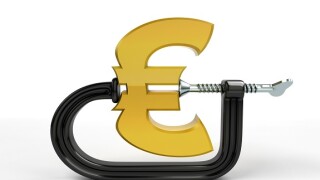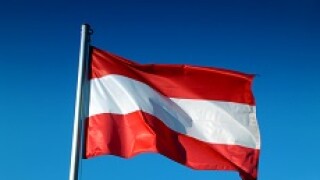Erste Group Bank
-
-
A pair of Austrian banks kept a quiet senior euro market ticking over earlier this week. Erste targeted price over size with a new senior deal, while Oberbank attracted a granular orderbook on its first visit to the non-preferred market.
-
Oberbank sold its first senior non-preferred bond on Tuesday. The issuer's investor work paid off as more than 70 accounts poured into the sub-benchmark deal, which was almost two times covered.
-
Erste Group Bank was first out of the blocks this week to tap the euro market for senior preferred paper, with the lack of competing supply allowing the bank to target 'pricing over size', according to one of the leads.
-
Austrian paper and packaging firm Mayr-Melnhof Karton, called MM Karton for short, has launched a Schuldscheine, with an initial target of €300m.
-
Oberbank is preparing to launch a sub-benchmark non-preferred senior deal into a quiet FIG market that has not seen a senior deal since Tuesday.
-
Emerging market bond mandates are continuing into the last month of the year, despite expectations that activity would quieten down after a jam-packed year of issuance. Kuwait’s Burgan Bank and Montenegro are among some of the CEEMEA issuers seeking to take advantage of unfalteringly attractive credit conditions.
-
Bank lenders are hopeful that volumes across the typically active central and eastern Europe region will pick up, after what has been a disappointing year. This week Romanian meat processing company Carmistin Group raised a syndicated loan from a range of regional lenders, which is one of only five deals signed in the country this year.
-
Erste Group Bank launched its second additional tier one (AT1) of the year on Monday, taking advantage of a surge in risk appetite in the run up to the Christmas break.
-
A trio of rare issuers found a window for issuance in the FIG bond market on Thursday, with Nykredit and Hamburg Commercial Bank accessing a tightening senior non-preferred market, while Íslandsbanki launched Iceland's first ever sustainable bond
-
The Russian Federation and the Republic of Hungary brought euro-denominated trades on Thursday, taking the opportunity to get funding done during good conditions in the run-up to the US Thanksgiving holiday, after which liquidity is expected to dry up.
-
Leonine, the German film and television production company, has signed loans totalling €189m, as some lenders say the market is likely to wind down early this year after the feast of bridge financings in the second and third quarters.










